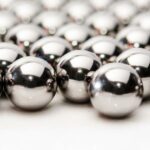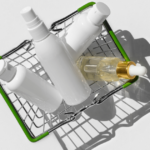Panasonic, a company with over a century of history in technology, has remained successful by pivoting to products promoting clean transportation, carbon-free energy, clean air and improved quality of life. We have done this by seeking new opportunities and partnerships that have allowed us to make significant impacts in new sectors.
This pivot has allowed Panasonic to draw upon our history of innovation to apply to new areas. The Suita Sustainable Smart Town, a converted factory in Osaka, Japan, demonstrates our focus on smart transportation, clean energy and sustainable living. Panasonic led a partnership of 15 companies and the local municipality to create the Sustainable Smart Town. The Suita SST features solar arrays, energy storage batteries and EV charging stations, and will eventually draw all energy from renewable sources. In the meantime, Kansai Electric Power Company and Osaka Gas will provide backup power for resilience. Residents in Suita SST will experience a more balanced and stress-free life thanks to robust technological resources and social support. These include the thoughtful inclusion of public green spaces, academia and a health and wellness center where residents of all ages can receive a range of health services.
Panasonic has converted factory sites into sustainable smart towns in Japan since 2014, and this third project will break new ground. The first project focused on suburban design while the second rejuvenated an urban space. Suita SST will focus on wellness and sustainability and aims for transformation through sustainable technology and improved quality of life.
Longer-term, we look to leverage the SST program to inform and support similar developments in Japan and in other countries, including smart-housing projects in China and in Germany that are also deploying Panasonic technology to provide comfortable and secure living in energy-efficient communities. Panasonic continues to enhance our sustainability efforts to advance our founder’s goal of improving lives through innovation. We are proud that our technology facilitates safer streets, energy resiliency and improving people’s lives.
Elsewhere in Japan, one of our factories in Kusatsu recently established a clean in-house power supply from a mix of solar photovoltaic panels, hydrogen fuel cells and storage batteries. Through this demonstration, Panasonic will gain real-world know-how and data on operating a zero emissions factory as well as establish a track record in energy management and pure hydrogen fuel cell generation. We are committed to our net-zero goals and expanding the use of clean energy technology in our manufacturing process.
Road intelligence is another area where we will boost quality of life. In the United States, Panasonic is partnering with state departments of transportation in Utah, Colorado and Georgia to roll out roadway data management technology. This cloud-based technology helps to alert drivers and transportation operators of icy conditions, traffic jams and other road hazards while reducing air pollution by mitigating traffic congestion.
In Colorado, Panasonic’s technology allowed local leaders to help make the road from Denver to the mountain ski resorts, with twists and turns and frequent icy conditions, safer and more efficient. In Utah and Georgia, these partnerships are also in operation and being expanded to include connected intersections and additional partner companies. Leveraging “vehicle-to-everything” (V2X) technology, the partnership has installed mobile and roadside equipment connecting to the Cirrus by Panasonic platform. Cirrus monitors and analyzes traffic and roadway conditions in real time.
Panasonic is also helping advance the electrification of the transportation sector in the U.S. The Panasonic Smart Mobility Office is developing software that helps companies operating electric fleets manage where and how they charge vehicles. A companion tool helps utilities operating the electric grid better understand impacts on their operations and optimize charging for increased efficiency. Solutions that make charging EVs easier, more predictable and more cost-effective can help speed up electric-vehicle rollout, bolster the grid and bring prices down for advanced energy infrastructure.
In support of our broader net-zero goals, Panasonic recently joined the Clean Energy Buyers Association (CEBA), a group of companies committed to achieving a 90 percent carbon-free U.S. electricity system by 2030. This goal goes hand-in-hand with Panasonic’s commitment to reach net-zero for Scope 1 and 2 emissions by 2030. Along with other CEBA members, such as GM, Google and Microsoft, Panasonic looks to decarbonize our operations and promote renewables development across the U.S.
Panasonic understands the challenges and our responsibilities as a leading global corporation. We have committed to seeking out and forging partnerships and opportunities that support the company’s goal to improve peoples’ lives, in public spaces and at home. We are proud that our former factory in Suita, where employees once produced cutting edge electronics, will feature public green spaces and active multi-generational living. When technology delivers on its promise, it helps improve day-to-day lives. Panasonic has focused on this mission of improving lives from day one of our operations — and we understand much work is still ahead.
Credit: Source link



